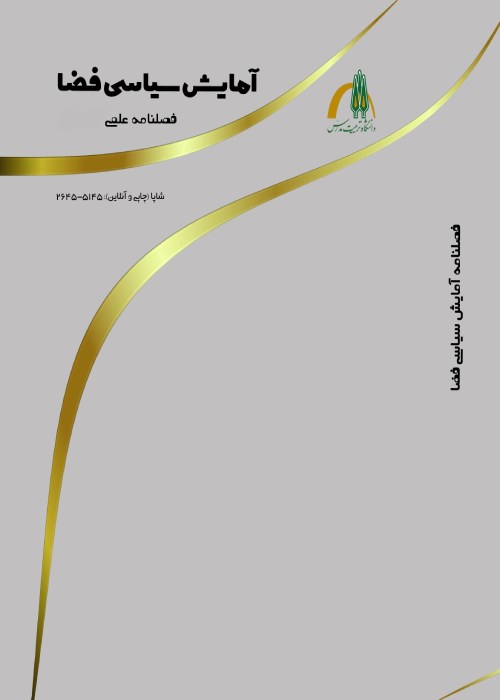Investigating the Implications of Border Management with Security Approach on Spatial Justice in Border Cities of East and West Azerbaijan Provinces Based on TOPSIS Model(Study area: border cities of Jolfa, Poldasht and Mako)
Iran has long borders with politically, security,defense and even territorially unstable neighbors,and with 8573.7 km of border and having 16 border provinces(more than half of the country) and 15 neighboring countries after Russia and China has the most borders.The special situation in the Middle East and the instability and tension in the neighboring countries,some divergent movements in the border areas in the past and now,etc.have caused a kind of pessimism and threatening view of the border areas by the government and border areas have been affected by the security approach.The approach of Iranchr('39')s spatial structure is unbalanced,which despite many efforts is far from spatial justice and the center-structure is around the dominant pattern of its spatial relations and Iranchr('39')s border areas do not have the desired level of development compared to the core and center of the country. Shannon and the TOPSIS multi-criteria decision-making model classify the cities of East and West Azerbaijan provinces from the perspective of spatial justice in order to highlight the effects of the security approach on spatial justice in these cities, especially border cities.The results of this study show that although the security approach in border management has improved security in its hard dimension, but the restrictions imposed on the intensification of backwardness and unbalanced distribution of spatial justice in the border cities of East and West Azerbaijan, especially Jolfa, Poldasht and Mako Implicitly, this can have consequences such as migration,land use change,environmental change,lack of employment and negative population growth rates in border areas. The results of this study show that although the security approach in border management has improved security in its hard dimension, but the restrictions imposed on the intensification of backwardness and unbalanced distribution of spatial justice in the border cities of East and West Azerbaijan, especially Jolfa, Poldasht and Mako Implicitly, this issue can have adverse consequences such as migration, land-use change, environmental change, lack of employment and negative population growth rates in border area
- حق عضویت دریافتی صرف حمایت از نشریات عضو و نگهداری، تکمیل و توسعه مگیران میشود.
- پرداخت حق اشتراک و دانلود مقالات اجازه بازنشر آن در سایر رسانههای چاپی و دیجیتال را به کاربر نمیدهد.


